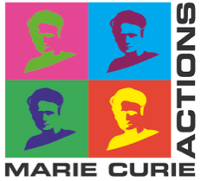How to use BcCluster!
Basic Guide
This is the basic guide for public users to access BcCluster. Further questions can be addressed by contacting Akshay Bhat [email protected] or Jerome Zoidakis [email protected].
Search Interface
All query terms should be placed in the "Search Box" above. Following are examples of search-terms to be used in BcCluster
- Gene Symbol - e.g. TP53, RB1, ERBB2, MMP9
- UniProt Accession/ID - P04637, P06400, RB_HUMAN
- miRNA ID - hsa-miR-21, hsa-miR-106a, hsa-miR-200b
- Metabolite name - palmitic acid, Lysine, S-Adenosylmethionine
- Chromosome / Methylation site - chr5q32-q34, chr12q13, chr22q11.23
- MedLine id (PMID) - 24476821, 18840072
Access Database via Omics Type
Users intending to query or search comprehensive features based on the sequencing platform or literature mined IHC validated experiments can get information based on the following;
- Literature mined IHC validated proteins
- DNA Methylation
- DNA Mutations - Divided into Oncogenes and Tumour Suppressor Genes
- Metabolomics - Divided into Metabolite names and Enzymes associated to the metabolites
- Transcriptomics - mRNA IDs
- miRNAs - Divided into miRNAs reported and possible gene targets.
- Protein-Protein Interaction (PPI) Data - Please note that when you query a gene symbol as explained above, the database automatically displays PPI partners associated to the gene if it exists within the BcCluster database
- Molecular Pathways Significant in MIBC - Here, one obtain all pathways that are altered in muscle invasive bladder cancer. The search interface does not provide any option of querying pathways directly, but this is currently under construction.
All molecules are presented based on the results from Bhat et. al (PLoS ONE 10(1): e0116404. doi:10.1371/journal.pone.0116404). Each omics type contains references for the molecule reported in the BcCluster database. More information on the BcCluster database can be obatined in the published article "A Bladder Cancer Database at the Molecular Level".
